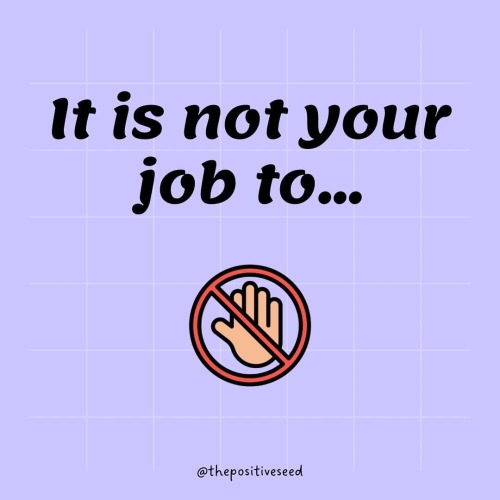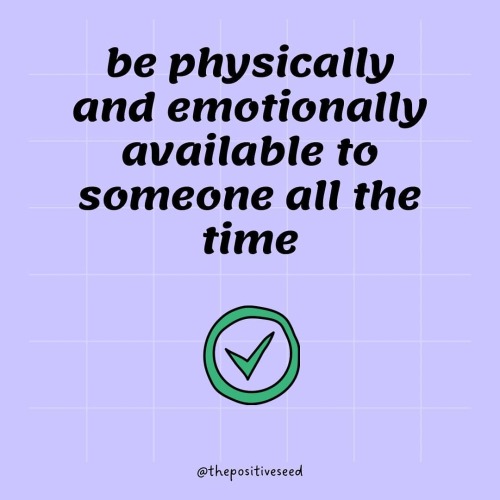The Entirety Of Tumblr From Tumblr Has Been Chucked In To The Ocean! You're All Wet Now.
The Entirety of Tumblr from Tumblr has been Chucked in to the ocean! You're all wet now.

More Posts from One-braincell-in-use and Others
a lot of people on tumblr and Ao3 seem to think Christianity (mainly Catholicism) is just a cool and sexy esthetic narrative force to make your characters guilty and repressed and I'm just like...
hey what about the grace? the grace of God? the grace God gave specifically so we wouldn't need to be guilty and repressed? God's grace? that grace? do they have that grace?

Our sweetness and our hope

idk what kills me more the fact that haggar is canonically considered hot (which 100% valid) or the fact that zarkon is probably media trained and shows up to random talk shows/game shows all charismatic and full of life after destroying worlds
there's also the possibility that lotor is considered those annoying nepo babies that get video essays made about his contribution to the empire and how talentless he is and how he's only well known bc his dad is the zarkon destroyer of all worlds.
the whole concept of this episode is so silly but also kinda the idea (the political side I mean) I wanted when it came to the media and propaganda spreading aspect of the empire.
Writing Notes: Flat & Round Characters

Flat Characters - Consist of only a few features (usually based on clichés). They’re generally static characters meant to serve the story.
Round Characters - Have depth. They have weaknesses, strengths, flaws, fears, tastes, and dreams. They are well characterized in order to seem real. They're dynamic and change over time. They feel affected by the story’s events because they suffer their consequences and learn from them which makes them more realistic and believable.
The use of flat characters
Flat characters are often used in TV comedies (30-minute sitcoms with canned laughter) because comedic stories usually focus on the anecdote and the joke.
Thanks to their commonplace situations and characters, sitcoms are able to transmit a sense of familiarity to the spectator.
Flat characters also have a supporting role in stories with round main characters in order to achieve one of these effects:
Fast recognition: You need your readers/audience to easily recognize the type of characters you are presenting.
Contrast: Flat and/or static characters can highlight the internal or external evolution of round characters.
When to avoid flat characters
Unless you’re specifically looking for one of the previous effects listed for flat characters, it’s best that your characters (especially the protagonists) are round in order for your readers to identify with them.
Creating round and deep characters
Consider the following:
1. Internal Changes
Do your characters undergo any internal changes throughout the story?
Think about their situation at the beginning of the story.
Is it the same as it is at the end? It shouldn’t be.
They can be worse or better, but the story’s events should have affected them in some way.
2. External Changes
Do the external circumstances surrounding your characters change throughout the story?
Just as their personalities suffer variations, their external conditions should as well.
For example, one of your characters could be a farmer at the beginning of the story and then become a warrior by the end.
3. Goals
What do your characters want?
They should have a conscious desire – something that moves them into action.
4. Wishes
What do your characters need?
Regardless of what they think they want, there’s something they need at an unconscious level – something different from what they consciously desire.
That contradiction will bring depth to your fictional heroes.
5. Achievements
What do your characters attain?
Do they achieve any of their goals?
How does that affect them?
If you have the answer to the last question, you’ll have a clearer idea of how the story’s events have changed their way of facing life.
For instance, if they achieve what they wanted at the beginning of the tale but that’s not what they really need, they can learn from their mistakes and try to correct them.
However, they might also give into frustration.
6. Weaknesses
What are their weaknesses?
Everybody makes mistakes and has fears and flaws, so if you want your characters to be more believable, they’d better have weak points and see themselves in need of facing them if possible.
Your characters overcoming these weaknesses or not depends on the story you want to tell and on the type of evolution you want them to experience.
Some overcome them and progress while others don’t and fail. The contrast between them is what makes the story more believable.
7. Strengths
What are their strengths?
Apart from weaknesses, your characters can have strong points they may or may not know about.
Sometimes, they discover them and learn how to make the most of them.
Other times, they do not know, and it leads them to failure.
You, as a writer, should be clear about those strengths and so should your readers be in order to better understand your characters.
8. Conflicts
What’s your characters’ inner conflicts?
Once you’ve answered the previous seven areas of question, you’ll find this one easier to answer.
Every good character must deal with an inner conflict throughout the story such as a mental debate between what they need and what they want or a moral struggle between what they’re trying to attain and what they consider correct.
This type of dilemma makes your characters interesting, and their experiences can turn into life lessons for your readers.
Source Writing References: Worldbuilding ⚜ Plot ⚜ Character ⚜ "Well-Rounded Character" Worksheet ⚜ On Conflict
Writing Advice: How To Trauma
In seeing the recent explosion of my "How To Write Trauma With Humanity" post, I have decided to jump back into this topic!
This cute post will be covering how to write complicated individuals with Trauma. From the good, the bad, and especially the ugly since people tend to assume that victimhood is inherently seperated from assholehood
A) Being A Person And Afraid
In my experience, the majority of people with trauma have simultaneously existing fears and desires that often contradict, complicate, or outright hurt themselves.
I call them "fear combinations"
It's these fear combinations that cause people with trauma to often act in ways that seem confusing to outsiders.
For example, the person that's always on the hunt for a relationship but whenever an opportunity for romance strikes, they create relationship havok so the relationship can end
Or a person tries to always sincerely bring attention to themselves but whenver the attention is on them, they just shrug it off as not being worthy of it
This behavior seems kinda weird until you stop to take a closer look at their psyche.
Example 1 is based off of my character, Monday Vũ who has a tendency of jumping into relationships with a sincere desire to find romance until the honeymoon period ends as Monday realizes that if the relationship continues they might have to settle down, forgo their entire identity, and all of their freedom. Then they sabotage the relationship under the guise that it's a selfless endeavour.
Example 2 is based off my character, Niko Preyr who uses grand public gestures and his friendships to prop himself up as a person to be known but if you ever spoke to him then you would quickly see one of the most insecure yet attention-hungry individuals you have ever seen.
"Fear Combinations" are an excellent device in making your characters complex. In my opinion, the trauma-writing scene is just a little bit too neat in it's displays of trauma. It's too logical. It doesn't feel real to my personal experiences.
"he has trust issues because of trauma" What if he also had issues with being clingy to people he sees as trust-worthy?
What if your characters weren't so easy to understand? But I hear you wondering.
How? How do these people manifest such confusing behavior? Why should I add this into my characters?
I'll tell you
B) Instinct Vs Terror, Fighting Against Yourself
In my opinion, "fear combinations" are either caused by the distortion of a human fear or the event in which an intrinsic desire is contrasted against a "survival method".
Humans are born with certain "intrinsic" fears and desires. Humans are born with a desire for belonging, a desire for vulnerability, a desire for self-fulfillment, a desire for independence, a desire for security in themselves.
And with desire comes the fear of "missing out". The fear that you want something that everyone wants but for some reason you won't be able to get it. The fear that you'll loose it. And the fear that your desire might put you into danger. What if you get rejected? What if you never find that group? What if you never find freedom?
In not-traumatized individuals, while it may take some introspection, people can and often do reconcile their fears and desires in a movie-montage when they're children with the help of a strong support system.
In traumtized individuals, what tends to happen is that either the fear of lose and the fear of gain tend to be increased to unpredencented levels
Either that, or a lack of a strong support system doesn't allow the child to safely confront their fears in order to get what they want.
This causes "fear combination"
Niko Preyr has the natural desire to be validated as "good", as "special", as "worthy". A desire we are all born with. However, his upbringing convinced him that he is underserving of what we all need. This causes Niko Preyr to use attention as validation. However whenever he receives this attention, his gifted fear that he is undeserving causes him to reject the attention. But he continues searching for attention to serve that need for validation. A hellish cycle.
Monday Vũ has two understandable fears that we all have. The fear of losing two necessary things: indepedence and security. Monday fears being abandoned, fears being engulfed into relationships. While children and adults can often reconcile those fears in their childhood through a strong support system, Monday never had that. Instead she had her father who emotionally left her and her mother who literally left her. Monday only had herself to rely on, at least thats how she felt. And now, as an adult, Monday wants to fulfill that desire we all have. To be loved. To be connected. But she's afraid. Afraid of being blindsided. Afraid of not having the last laugh. Afraid of being apart of something.
What if that loner wolf found someone who they think is perfect. Someone worthy of their trust. Do you really think that all those years of yearning for love, for connection, are just going to be smothered when they have the perfect person to unleash their childish, half-developed, horrifying emotions onto?
But what next? After we have our character's contradictory fears and desires, after we have the justification for why they feel like this, what's next?
It's this:
C) Self-Destructive Habits: Why We Understand And Can't Change
Let me tell you, unless in very specific conditions such as certain personality disorders and so on, people tend to understand that their behavior is foolish, illogical, and hurting other people.
Monday knows that betraying other people, hurting their trust and faith in their relationships, and entering relationships when she understands her history is bad. It makes her a bad person.
Niko knows that their habits are actively hurting their chances at finding worth.
That "Lone Wolf" understands, deep down, that no single person can handle the high expectations and emotions.
They know it because they can see it. Many times. Monday can see that characters in movies who have their relationship history tend to be casted as the antagonist. Niko can hear the gossip. That "Lone Wolf" can see the way that their loved ones cracked under the pressure and guilt.
So why do they do it? It feeds into their idea of the world. It feeds into what they want to be perceived as. It feeds into their stagnancy.
If Monday can ignore how they hurt others, then they can live under the Martyr label for the rest of their life without having to come to term with the fact that this isn't selflessness, it's called being pathetic.
If Niko can ignore how deep that hurt goes, then they never have to actually make the effort to change. To take that potential and make themselves into something. To be responsible.
If "Lone Wolf" can ignore how nobody can meet their expectations without crumbling down, then they use everyone's failure to feed into their cynical, self-hating notion of how nobody's trustworthy. How they don't have the responsibility of being considerate.







@positiveseed
YOUTUBE
Too Christian for the queers. Too queer for the Christians. It’s a hard road that we walk, isn’t it?
":)"







clark reupload
edit: forgot the sweater comic
-
 my-brain-soup liked this · 1 week ago
my-brain-soup liked this · 1 week ago -
 abby-strawberry-milk reblogged this · 1 week ago
abby-strawberry-milk reblogged this · 1 week ago -
 catsrlovelysmil reblogged this · 1 week ago
catsrlovelysmil reblogged this · 1 week ago -
 queerghosts reblogged this · 1 week ago
queerghosts reblogged this · 1 week ago -
 dragleclef reblogged this · 1 week ago
dragleclef reblogged this · 1 week ago -
 simplycauseicanandwill liked this · 1 week ago
simplycauseicanandwill liked this · 1 week ago -
 galahad1155 reblogged this · 1 week ago
galahad1155 reblogged this · 1 week ago -
 galahad1155 liked this · 1 week ago
galahad1155 liked this · 1 week ago -
 arun-armand-amadeo liked this · 1 week ago
arun-armand-amadeo liked this · 1 week ago -
 albatraoz liked this · 1 week ago
albatraoz liked this · 1 week ago -
 lockintothevoid reblogged this · 1 week ago
lockintothevoid reblogged this · 1 week ago -
 iamnotamagpie reblogged this · 1 week ago
iamnotamagpie reblogged this · 1 week ago -
 smalliinsaneone reblogged this · 1 week ago
smalliinsaneone reblogged this · 1 week ago -
 horton-hears-a-doctor-who liked this · 1 week ago
horton-hears-a-doctor-who liked this · 1 week ago -
 marvel-leviathan reblogged this · 1 week ago
marvel-leviathan reblogged this · 1 week ago -
 willowgrove liked this · 1 week ago
willowgrove liked this · 1 week ago -
 bchnnbrns reblogged this · 1 week ago
bchnnbrns reblogged this · 1 week ago -
 boys-to-mp3-converter reblogged this · 1 week ago
boys-to-mp3-converter reblogged this · 1 week ago -
 mypluginbaby liked this · 1 week ago
mypluginbaby liked this · 1 week ago -
 annoyedmoss reblogged this · 1 week ago
annoyedmoss reblogged this · 1 week ago -
 annoyedmoss liked this · 1 week ago
annoyedmoss liked this · 1 week ago -
 cschita liked this · 1 week ago
cschita liked this · 1 week ago -
 the-real-dannix reblogged this · 1 week ago
the-real-dannix reblogged this · 1 week ago -
 keo6323 reblogged this · 1 week ago
keo6323 reblogged this · 1 week ago -
 riiverton liked this · 1 week ago
riiverton liked this · 1 week ago -
 ampelou liked this · 1 week ago
ampelou liked this · 1 week ago -
 superiorvenacava reblogged this · 1 week ago
superiorvenacava reblogged this · 1 week ago -
 calypso047 reblogged this · 1 week ago
calypso047 reblogged this · 1 week ago -
 crusty-chimichanga1800 liked this · 1 week ago
crusty-chimichanga1800 liked this · 1 week ago -
 yuki-mirai reblogged this · 1 week ago
yuki-mirai reblogged this · 1 week ago -
 toomanyschwas reblogged this · 1 week ago
toomanyschwas reblogged this · 1 week ago -
 magickfluff liked this · 1 week ago
magickfluff liked this · 1 week ago -
 galwithalibrarycard liked this · 1 week ago
galwithalibrarycard liked this · 1 week ago -
 one-summer-night-i-fell-asleep reblogged this · 1 week ago
one-summer-night-i-fell-asleep reblogged this · 1 week ago -
 one-summer-night-i-fell-asleep liked this · 1 week ago
one-summer-night-i-fell-asleep liked this · 1 week ago -
 sterenjpeg liked this · 1 week ago
sterenjpeg liked this · 1 week ago -
 neutralrobot reblogged this · 1 week ago
neutralrobot reblogged this · 1 week ago -
 wesawbears reblogged this · 1 week ago
wesawbears reblogged this · 1 week ago -
 dat-carovieh reblogged this · 1 week ago
dat-carovieh reblogged this · 1 week ago -
 midnightdreamfairy reblogged this · 1 week ago
midnightdreamfairy reblogged this · 1 week ago -
 isolawildest liked this · 1 week ago
isolawildest liked this · 1 week ago -
 tillywunderwing liked this · 1 week ago
tillywunderwing liked this · 1 week ago -
 sangheilihoes reblogged this · 1 week ago
sangheilihoes reblogged this · 1 week ago -
 yolo-frollo reblogged this · 1 week ago
yolo-frollo reblogged this · 1 week ago -
 yolo-frollo liked this · 1 week ago
yolo-frollo liked this · 1 week ago -
 whatcould-go-wrong liked this · 1 week ago
whatcould-go-wrong liked this · 1 week ago -
 viktorrotkiv reblogged this · 1 week ago
viktorrotkiv reblogged this · 1 week ago -
 blue-vein-tavern liked this · 1 week ago
blue-vein-tavern liked this · 1 week ago -
 andwithinme liked this · 1 week ago
andwithinme liked this · 1 week ago -
 that-nerdy-ginger-girl reblogged this · 1 week ago
that-nerdy-ginger-girl reblogged this · 1 week ago

I go by he/him, call me Micah! Minor, student, and professional procrastinator.
55 posts